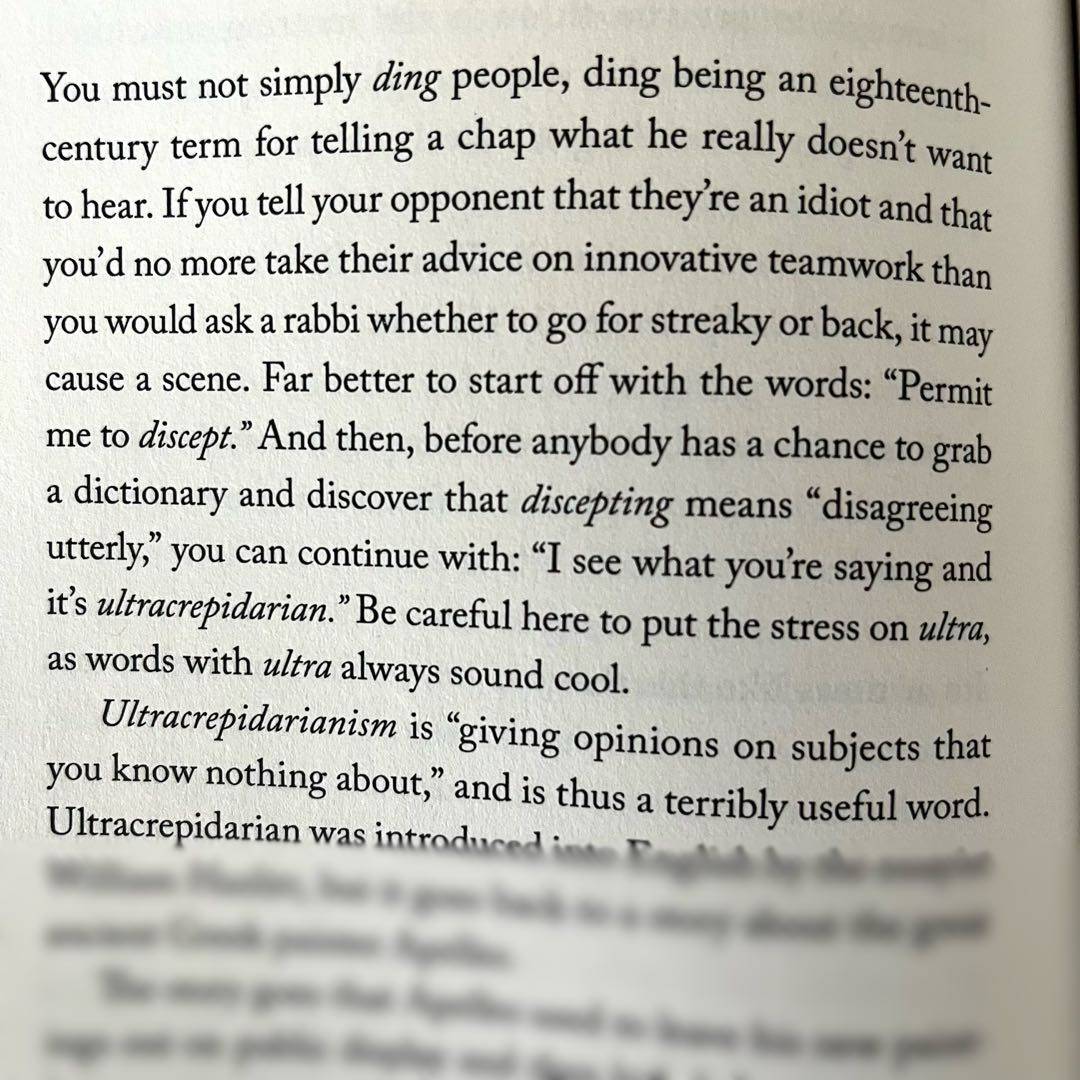

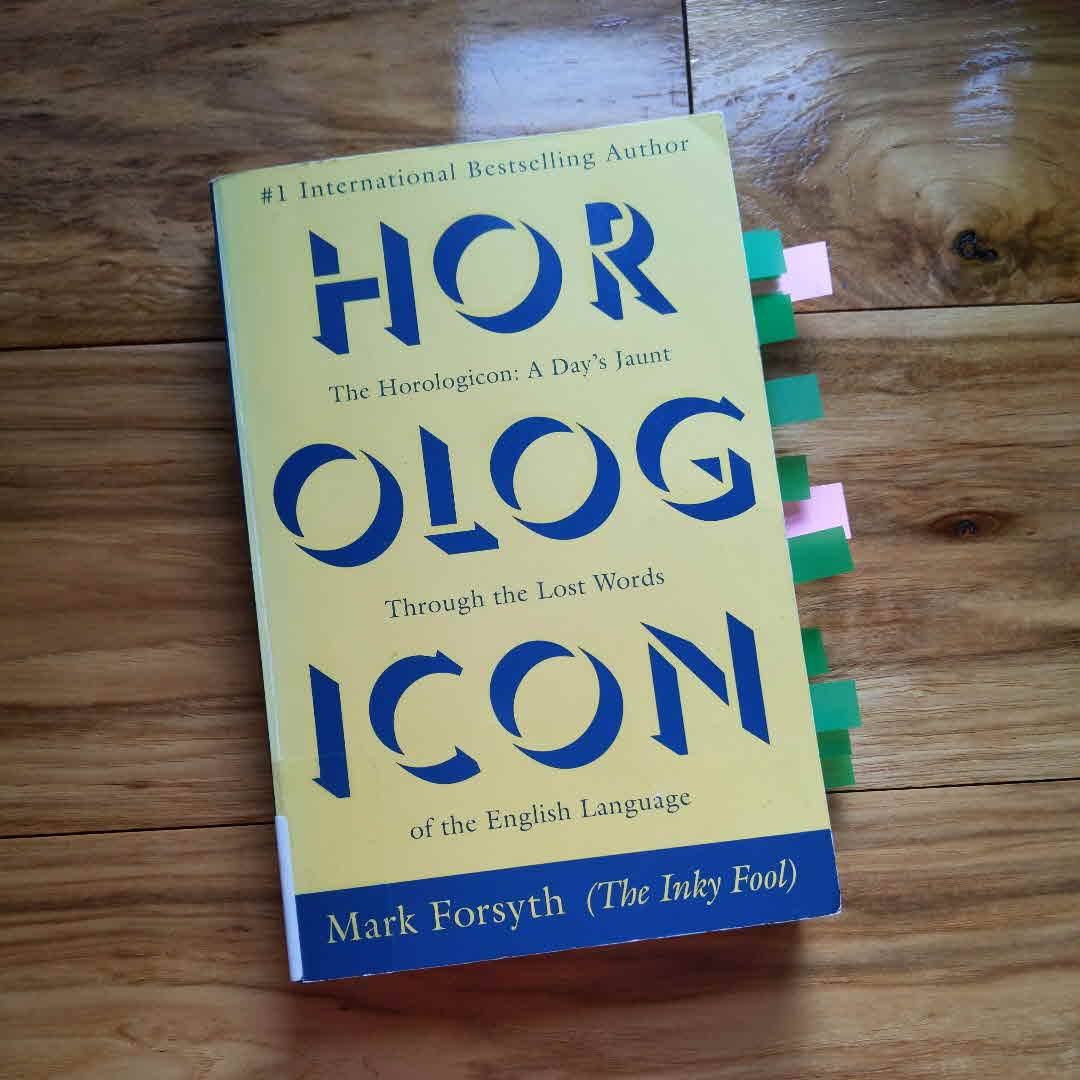
This nonfiction book has been on my TBR for a while. I started reading a chapter a day sometime in July & finished it earlier this week. I definitely recommend reading it in small chunks since it's a little overwhelming all at once. Forsyth has written a book exploring little-used but fascinatingly specific words & has organized them in a way he says makes it easier to look them up later - by working his way through a "normal" day & discussing ⬇️
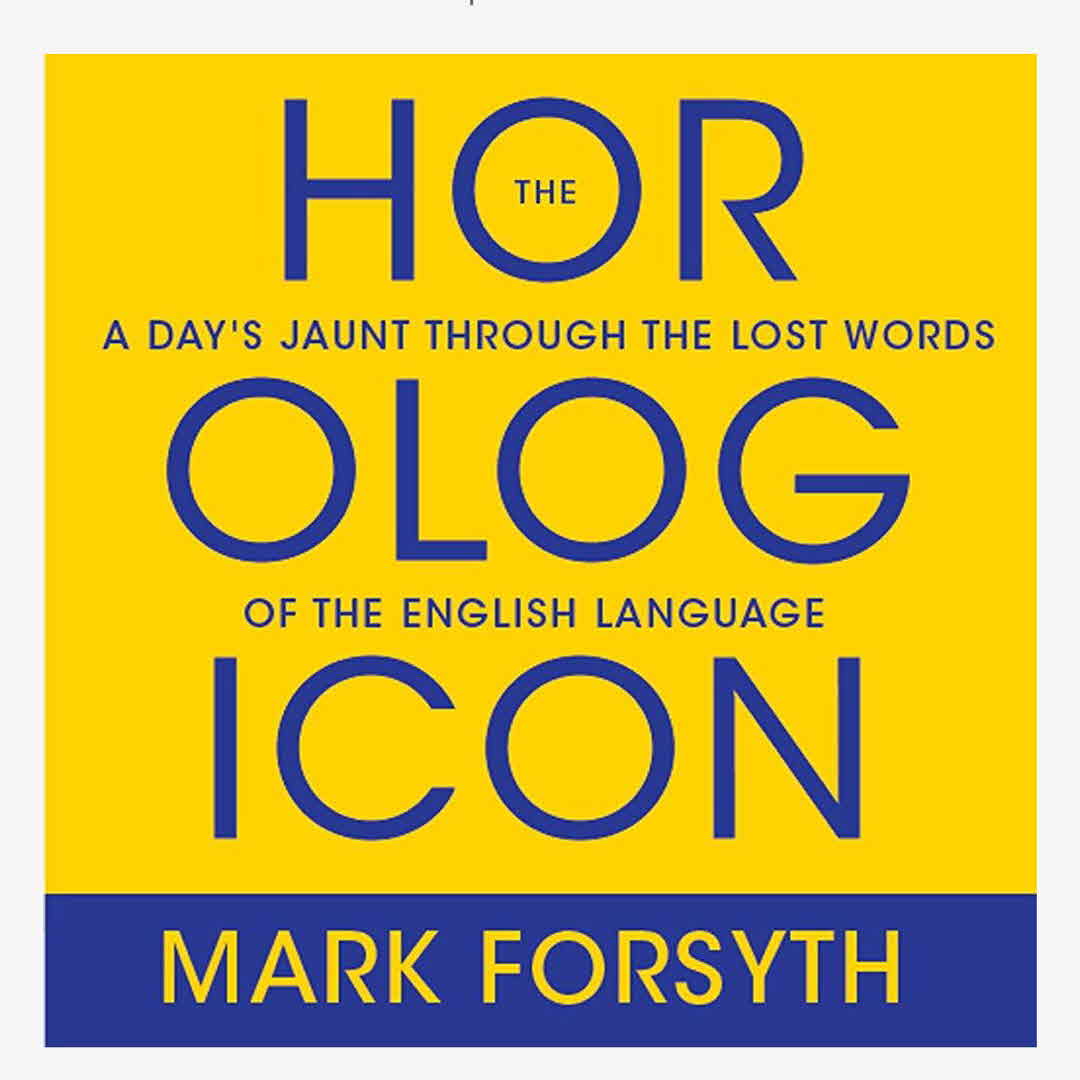
I love Forsyth's other books, but this one didn't quite hit the mark for me. It felt like it was trying too hard. The last third of the book is definitely the most entertaining, and it did introduce me to the term "wonderwench", which is now the only form of address that I will respond to, so it was worth it. Lovers of words should still read this, but if you are strapped for time, stick with his other two books.
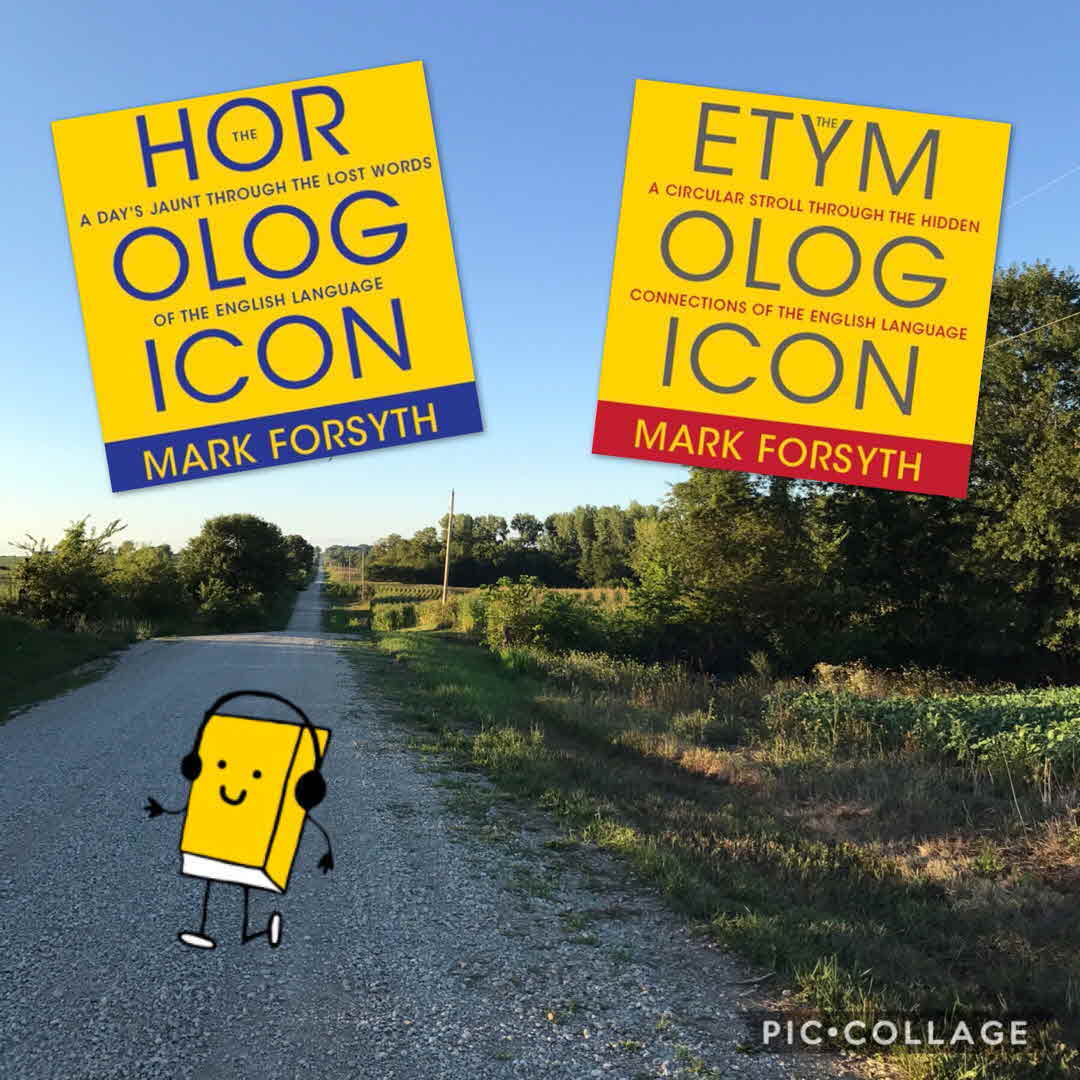
These two audiobooks have made for great walks this week. They have created many moments of amused astonishment about the history of the English language. Yesterday I finished The Etymologicon and tonight I started The Horologicon. Although the first has been of a bit more interest to me because it's mostly words we use today, both are fascinating.
#nonfiction #audiobook #audiowalk #Hoopla

Finished this one up on #audiobook today while I sorted a gazillion pocketbooks. It was so good. Made me laugh out loud unexpectedly often for an etymology book! 😂 #behindthescenesatbookmans
“There is a single Old English word meaning ‘lying awake before dawn and worrying.‘ Uhtceare is not a well-known word even by Old English standards, which were pretty damn low. In fact, there is only one recorded instance of it actually being used."
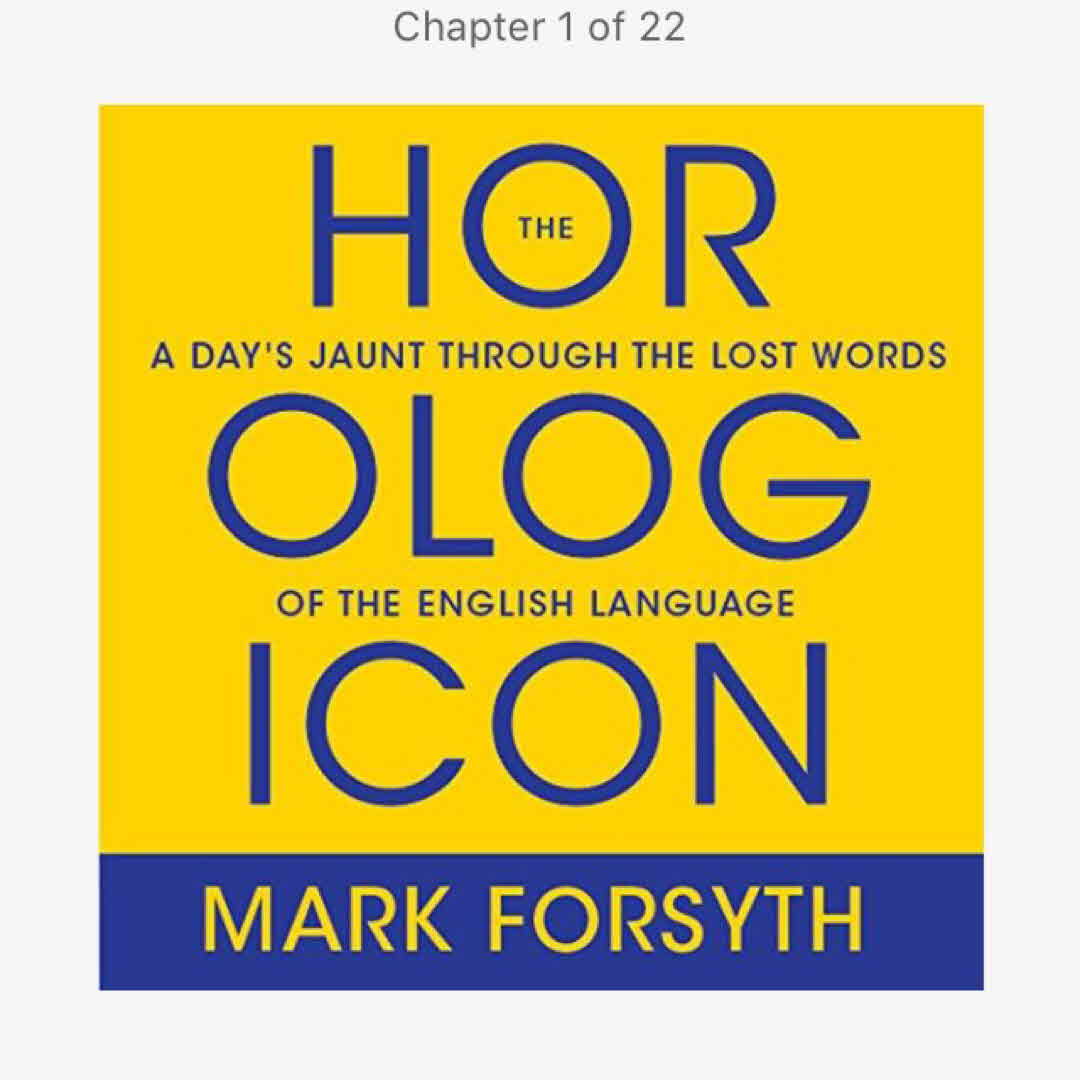
Yesss!! I loved The Etymologicon. Excited about this one!
Offices are peculiar places and nobody is ever quite sure what happens in them, least of all the people who work there. But the day tends to begin with a morning meeting, in which everybody decides what they will fail to do for the rest of the day.
So familiar are eggs to us, however, that in the eighteenth century they were referred to as cackling farts, on the basis that chickens cackled all the time and eggs came out of the back of them.
The problem with the alphabet is that it bears no relation to anything at all, and when words are arranged alphabetically they are uselessly separated. In the OED, for example, aardvarks are 19 volumes away from the zoo, yachts are 18 volumes from the beach, and wine is 17 volumes from the nearest corkscrew.
Unlike its counterpart, The Etymologicon, it's a little less compelling as it represents more of a non-linear read. But, it's well worth investing the time to find the words you never knew you needed.